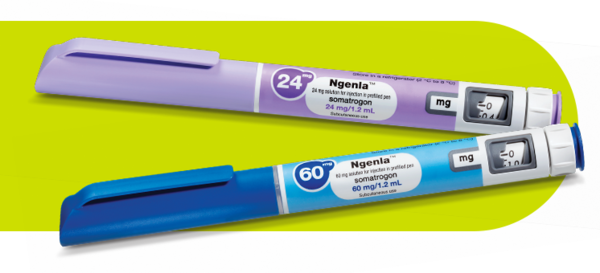Pfizer Korea has confirmed that it has halted promotional activities for its once-weekly growth hormone injection, Ngenla Prefilled Pen.

“Starting Jan. 1, 2025, the company ceased operations such as sales representative activities, academic conference support, and product seminars for Ngenla,” a Pfizer Korea official told Korea Biomedical Review. “Nurse-led self-injection education programs, including the provision of needles and alcohol swabs, ended in December 2024.”
To minimize disruptions for current patients, nurse education and guidance programs will be available upon request until March 2025, the official added.
Despite ending promotional activities, Pfizer Korea will continue to supply Ngenla.
However, the official did not provide further comments if the treatment would be available indefinitely in Korea for patients currently using the product.
The growth hormone injection market, commonly referred to as the "height growth injection" sector, has consistently expanded despite Korea’s declining birthrate. According to IQVIA, a drug makert research firm, the loca; market for growth hormone products surged from 159.2 billion won ($109.2 million) in 2020 to 277.5 billion won in 2023.
The dominant treatments for pediatric growth hormone deficiency caused by pituitary gland dysfunction in Korea are somatropin-based daily injections. These include Eutropin (LG Chem), Growtropin-II (Dong-A ST), Saizen (Merck Korea), Genotropin (Pfizer Korea), Scitropin (SciGen Korea), Zomacton (Ferring Korea), Declage (LG Chem), and Norditropin (Novo Nordisk Korea).
LG Chem's Eutropin currently has the largest market share.
While effective, the daily injection regimen has posed a significant burden on pediatric patients.
Also, studies emphasizing that adherence to therapy is crucial for optimal growth outcomes prompted the development of weekly alternatives such as Pfizer’s Ngenla (somatrogon) and Novo Nordisk’s Sogroya (somapacitan).
Ngenla received regulatory approval in Korea on Jan. 31, 2023, and entered the market with reimbursement coverage in September of the same year.
However, despite high expectations, Ngenla’s sales performance in its initial half-year in 2024 reached only 418.6 million won, a modest figure given the anticipated market impact of its weekly dosing advantage.
This contradicted initial expectations from health experts who projected that the once-weekly regimen would significantly influence market share, particularly for pediatric patients requiring over a decade of consistent treatment.
Industry insiders attribute the subdued sales to the unique dynamics of Korea’s growth hormone therapy market, where non-reimbursed prescriptions dominate.
While growth hormone injections are approved for conditions such as growth hormone deficiency, Turner syndrome, and short stature, they are frequently marketed as height growth injections at private clinics in Korea.
Related articles
- Korea's pediatric growth hormone market sees explosive growth amid rising demand
- 'Reimbursement of Pfizer's weekly growth hormone drug offers new hope for adolescent patients'
- Pfizer’s once-weekly growth hormone covered by insurance from September
- Pfizer's growth hormone deficiency injection scores nod in Korea, after FDA refusal
- Pfizer and Korea Vaccine Sales to co-promote Prevenar 20
- Viatris, Pfizer, Vantive cut jobs in Korea
- Pfizer Korea expands alopecia treatment options for adolescents with Litfulo launch
- Pfizer wins Korea nod for pediatric arthritis use of oral JAK inhibitor Xeljanz
- Novo Nordisk expands in Korea with once-weekly insulin as obesity and hormone rivals circle
- Novo Nordisk to resume supply of growth hormone Norditropin in Korea
- 60% of Korean kids use growth hormone for height, not health

